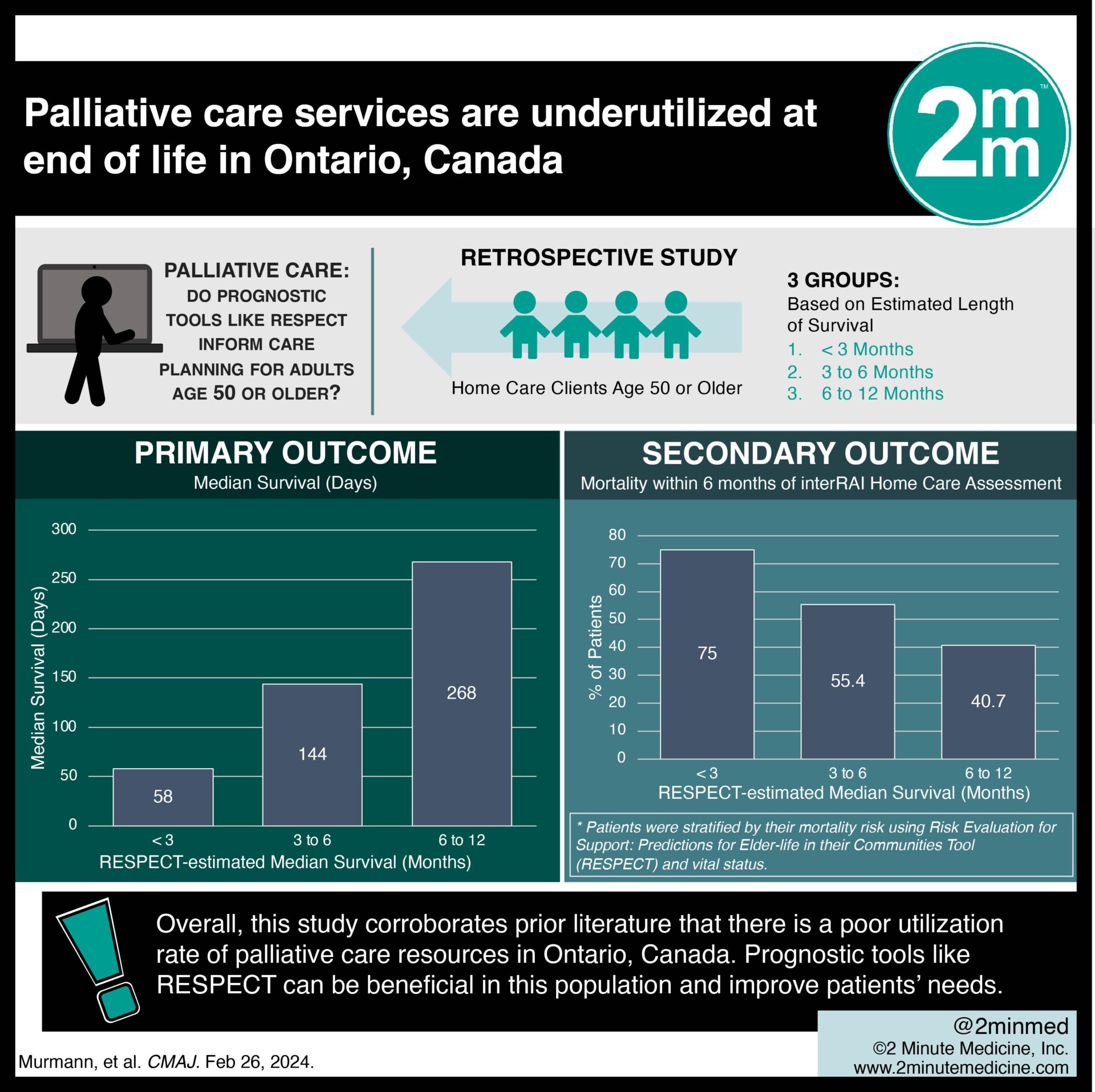
2. The Risk Evaluation for Support: Predictions for Elder-life in their Communities Tool (RESPECT) served as a valuable prognostic model to provide early identification of palliative care needs.
Evidence Rating Level: 2 (Good)
Palliative care is as essential service in the provision of holistic and patient-centred care for those diagnosed with life-limiting illnesses. Earlier initiation of palliative care has been linked with better outcomes such as improved quality of life and reduced distress. Despite this however, there is evidence that in Canada, as little as 15% of eligible individuals receive palliative care in their last year of life. This retrospective cohort study involved individuals 50 years or older (median age 80.1 [SD 11.0) years, mostly female [61.9%]) and examined their use of health care in Ontario. Within the first 6 months of the study, 29420 (11.9%) of the participants died. The median survival ranged from 30 days to 1576 days, and 98.1% in RESPECT risk bin 1 to 1.6% in risk bin 61. Only a few participants (2.6%) that were receiving home care, received a diagnosis of end-stage disease. The median survival was 58 (Interquartile range [IQR] 19-181) days for individuals with a median survival of less than 3 months, whereas the median survival for those predicted to live between 3 to 6 months was 144 (IQR 47-466) days, and 268 (IQR 79-826) days for those with a predicted median survival between 6 to 12 months. In all, this study corroborates prior literature that there is a poor utilization rate of palliative care resources in Canada.
Click to read the study in CMAJ
©2024 2 Minute Medicine, Inc. All rights reserved. No works may be reproduced without expressed written consent from 2 Minute Medicine, Inc. Inquire about licensing here. No article should be construed as medical advice and is not intended as such by the authors or by 2 Minute Medicine, Inc.















